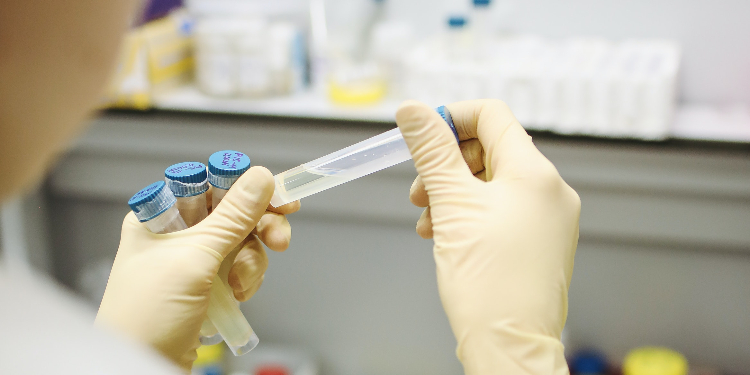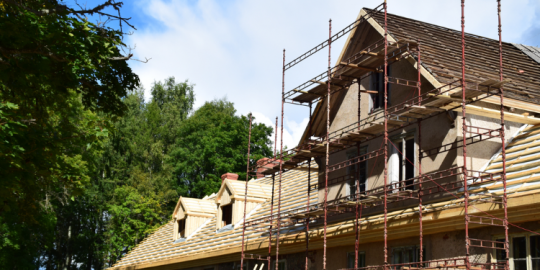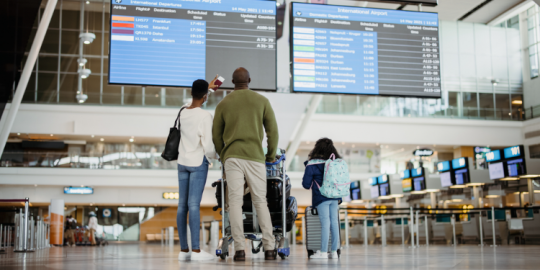As of Monday, many countries had already vaccinated a significant proportion of their populations. China tops the list with 9 million vaccines administered, followed by the United States with 6.69 million doses administered. Then come Israel with 1.8 million vaccines, the United Kingdom with 1.5 million and the United Arab Emirates with 1.09 million doses administered at the start of the week. Russia, Italy, Germany, Canada, Spain, Poland, Denmark, Argentina, Romania and Saudi Arabia are also immunising their populations, but at a slower pace.
In the United States, thousands of vaccination centres were set up for the beginning of the vaccination campaign in December 2020. According to the Centers for Disease Control and Prevention, more than 2.7% of the population had already received their first dose this week. In some states, especially the most affected ones, the police, firefighters, as well as teachers and people over 75 years of age, are being prioritised. In others, such as California, healthcare workers were the first to be immunised.
In France, despite a rise in the rate of hospitalisation, more than 138,000 people had been vaccinated on Tuesday. However, the vaccination campaign didn't start as expected, mainly due to poor administration coupled with the population's hesitancy. While the UK had already administered 1 million doses and Germany had already vaccinated more than 200,000 people during the first week of January, only 350 doses had been administered in France.
For its part, the UK is looking to immunise at least 15 million people by mid-February as the new variant progresses with rage. The country has set up seven mass vaccination centres using conference centres and sports stadiums out of 2,700 centres. Thus, the government aims to immunise at least 2 million people per week, including residents and staff of some 10,000 retirement homes by the end of January. The government program plans to extend the vaccination campaign to 206 active hospitals, 50 additional vaccination centres, and some 1,200 community pharmacies, mobile teams and primary care networks.
In Switzerland, the vaccination campaign started on January 4, mainly in Geneva, Friborg, Neuchâtel and Valais. Bern, Vaud and Grisons started theirs on January 11. In Geneva, however, only people aged over 75 are being vaccinated. According to Swiss authorities, the slow distribution of vaccines in various regions is to be blamed. Switzerland had initially ordered 15 million doses from the three leading suppliers, but they have only received a few thousand so far.
Meanwhile, Africa, which is the second most-affected region after the US, is lagging far behind the rest of the world. The price of vaccines is one of the biggest challenges for African countries. So far, only the most developed countries have successfully started their vaccination campaigns. According to the World Health Organisation (WHO), only a quarter of African countries have the means to obtain vaccines. However, the WHO hopes to have at least 3% of Africans immunised by March 2021. According to forecasts, only 20% of the African population could be vaccinated by the end of 2022. Seychelles is the only African country to have started its vaccination campaign on January 10 with Sinopharm vaccines that have been developed in China.
Through its COVAX program, the WHO is planning a mass distribution of vaccines to the poorest countries in Africa, Asia and Latin America. However, this is going to take a lot of time. It is expected that at least 20% of their populations will benefit from some 2 billion doses by the end of 2021. But for all of these nations to be immune to the coronavirus, it's probably going to take until the end of 2024.
One pandemic, many vaccines
While most countries are administering the Pfizer-BioNTech vaccine to their populations, some are developing their own vaccines. This vaccine seems to be the most reliable one. In November 2020, its first results showed 95% efficiency. For example, the UK has ordered 40 million doses of the Pfizer-BioNTech vaccine that are currently being used in the vaccination campaign. This vaccine is administered in two doses, at three weeks interval. For 2021, the BioNTech aims at producing at least 2 billion doses.
Moderna is another vaccine developed by a biotech company based in Massachusetts, USA. Tests showed that it is 94.5% efficient. This vaccine should also be administered in two doses but at four weeks interval. Unlike the Pfizer-BioNTech vaccine, the Moderna vaccine is easier to store, at -20 ° C for six months. Besides these two, other vaccines are currently being developed. Russia, for example, developed the Sputnik V vaccine, which is 92% effective. Another vaccine was developed by the University of Oxford-AstraZeneca and was approved for trials at the end of 2020. This vaccine does not have to be stored at low temperatures.
Biotech companies worldwide are also working on a universal vaccine that should be ready by the end of 2021. This new vaccine is expected to be immune to mutations.
















